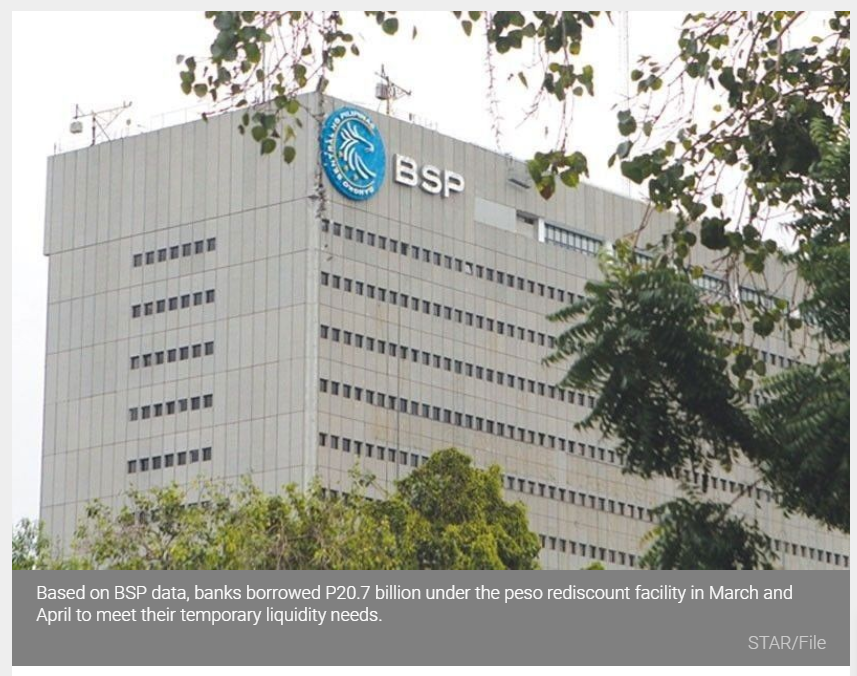Philippines: No takers for BSP rediscount facility
MANILA, Philippines — Banks continued to snub the peso rediscounting loan facility of the Bangko Sentral ng Pilpinas (BSP) for the third straight month in July as measures aimed at softening the blow of the pandemic on the economy released much needed liquidity into the financial system.
Rediscounting is a BSP credit facility extended to qualified banks with active rediscounting lines to meet their temporary liquidity needs by refinancing the loans they extend to their clients using the eligible papers of its end-user borrowers.
Based on BSP data, banks borrowed P20.7 billion under the peso rediscount facility in March and April to meet their temporary liquidity needs.
Of the total amount borrowed, the BSP said loans for capital asset expenditures cornered the biggest share with 62.7 percent, followed by permanent working capital with 13.9 percent.
However, there were no takers since May even if the Monetary Board approved earlier the temporary reduction in the spread on peso rediscounting loans relative to the central bank’s overnight lending rate, to zero for a period of 60 days or until May 19.
The validity of the relief measure was extended twice to July 17 and now to Sept. 30. The applicable BSP rediscount rate for loans under the peso rediscount facility remains at 2.75 percent, regardless of loan maturity.
The peso rediscount rates are usually based on the latest BSP overnight lending rate, plus a spread depending on the term of the loan.
“There was no availment in July,” the BSP said.
Likewise, the BSP said there were also no takers for the Exporters’ Dollar and Yen Rediscount Facility (EDYRF) despite the temporary reduction on the spread to zero until Sept. 30.
The applicable rate for the EDYRF in August stood at 2.24875 percent for dollar and 1.94483 percent for Japanese yen, regardless of loan maturity.
Aside from the cumulative 175 basis points interest rate cuts to an all-time low of 2.25 percent, the BSP has also lowered the reserve requirement ratio for big banks by 200 basis points, entered into a P300 billion repurchase agreement with the Bureau of Treasury, suspended the term deposit facility auction, lowered the volume of the overnight deposit facility, among others. These actions have released about P1.3 trillion into the financial system.
Loans from the peso rediscount window of the central bank jumped by 71 percent to a record high of P122.17 billion last year from P71.52 billion in 2018.
Michael Ricafort, chief economist at Rizal Commercial Banking Corp., said the increased liquidity in the financial system largely attributed to the zero availments by banks on the BSP rediscounting facilities over the past few months.
“This sends a positive signal to the markets as banks need not rediscount their loans or assets with the BSP and indicate they have more than enough funding to service their requirement of their depositing and borrowing clients, especially during the lockdown,” Ricafort said.
Ricafort also cited the lowering of the reserve requirement ratio (RRR) for big banks by 200 basis points last March and for mid-sized, as well as small banks last July that freed up more liquidity into the system.
Ricafort alsos said that the use of loans released to micro, small, and medium enterprises (MSMEs) as alternative compliance to the RRR also freed up more funds allowing banks to lend more.
Source: https://www.philstar.com/business/2020/08/11/2034293/no-takers-bsp-rediscount-facility


 English
English




